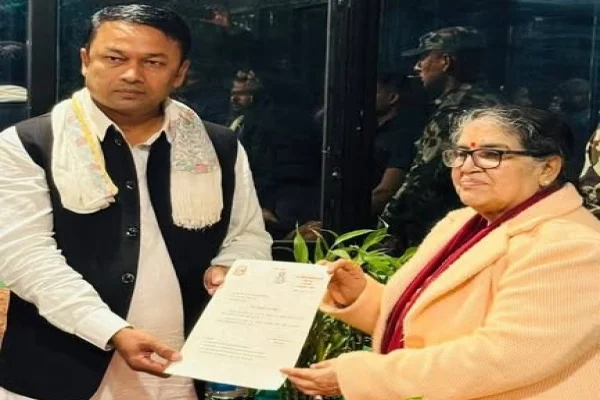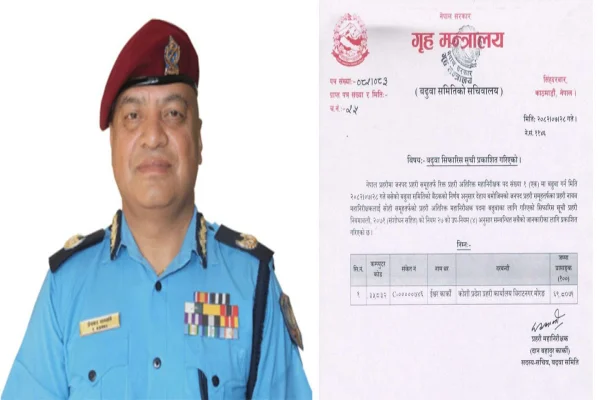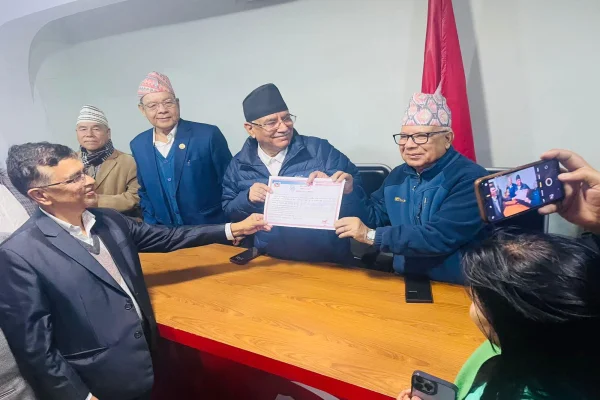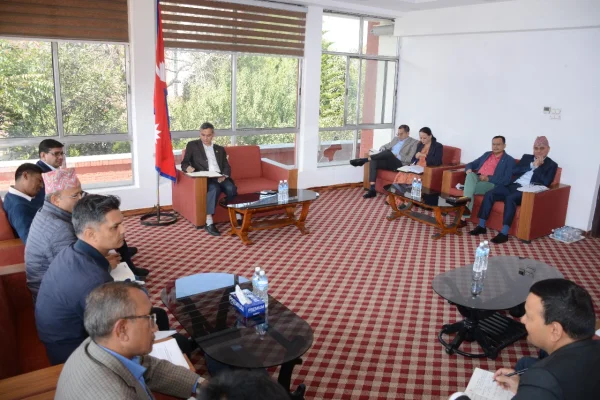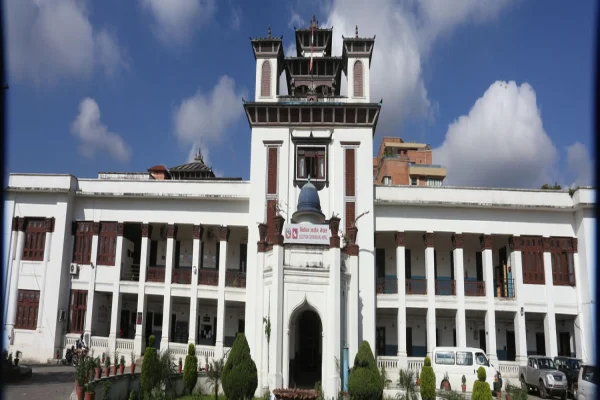Born in 1946, to an Indian Gorkha soldier originally from Palpa and a Thakuri woman from Rukumkot, at her father’s duty station in Lucknow in the Ganga Plains, she settled with her parents and siblings in Shillong, up in the rain-soaked mountains of Assam (now Meghalaya) in eastern India.[break]
Growing up in abject poverty, haunting memories of her childhood are of the moments she used to devour leftover food at the local crematorium after mourners had left. She passed her Matriculation without any formal schooling. In the travails of her mother, she saw submissiveness and resoluteness of a traditional woman. Her father showed her the waywardness of polyandrous men. She was to later capture the interplays of emotions and quandaries of conjugal life in several of her short stories.
Maya is cautious about explaining the reasons that made her find her way back to Nepal, but she admits that she wanted to see Rukumkot, the place which had given birth to a resolute woman like Devi Thakuri, her mother. Her first short story was “Bahulahi,” published in Asha magazine in BS 2021 (1963-64). She arrived in the 1970s of Kathmandu when the literary scene had already been warmed up by the creations of Parijat; and when she enrolled at the Tribhuvan University, her name was already known as that of a fiction writer.

Her first collection to appear was “Najureko Jodi” and was published by Ratna Pustak Bhandar in 1983. Another short story collection called “Gamalako Phool” followed in 1986. Litterateur Bhawani Bhikshu writes, “Maya has shown vision and sympathy besides other qualities which could be considered prerequisite for writing short stories.” Her other books are “Saanghu Tarepachhi”, “Chautaro Sakshi Chha”, “Maya Thakurika Kathaharu” (Bhanu Prakashan, Biratnagar, BS 2065), and “Aama! Januhos” (Ratna Pustak, Kathmandu, BS 2065).
Maya calls herself a humanist in writing and explains that she never bothered to join any movement. She has been a teacher for a long time, and has edited “Balkatha Phoolbari” and “Naaniharulai Koseli”—both collections of children’s stories. She has been awarded with Ratnashree Subarna Padak, Mainali Katha Purushkar, and Shiksha Purushkar.
The lead story in Aama! Jaanuhos (Mother! Please go) depicts dilemmas of a middle-age son having to take care of his malodorously sick 86-year-old mother who has had lost control over her organs of excretion due to a paralytic stroke. The story evokes sympathy for the mother and empathy for the son among adult readers.
The aged read a different meaning. The narration becomes a mirror—no, a ‘looking glass’ perhaps—in which perplexities of a prismatic society stares back at the face of the onlooker.
In an earlier story, “Paso” (the net/noose), the author weaves the nefarious designs of a duplicitous male character into the naivety of another wayward man with such finesse that the reader is left wondering as to why the tale had to end on such a miserable note. Professor Govindaraj Bhattarai assesses that there is hardly the need or the time to think about the genre of the story when reading Maya Thakuri; the simplicity and authenticity of her tales are so gripping.
Her attempts at capturing the destruction of imagination and death of emotions in a civil war, however, are less captivating. The story “Pahad Orlindaichha” (Mountain is climbing down) begins with a harangue of calamities of armed conflicts, then proceeds with dispirited dialogues, and ends in a detached withdrawal. While such reactions are not synthetic per se, the story fails to arouse or inspire. The observation of renowned critic Krishnachandra Singh Pradhan that Maya Thakuri writes instructive stories rather than tell literary tales somehow resonates in her later creations.
Perhaps what separate Maya’s works from other contemporaries are the simplicity of plot and an absence of pretension in presentation. Reading her is as easy as facing the looking glass. The reflection, however, can sometimes be quite unsettling.
Nagarik journo Thakuri bereaved of his father





_20220426210826.jpg)
